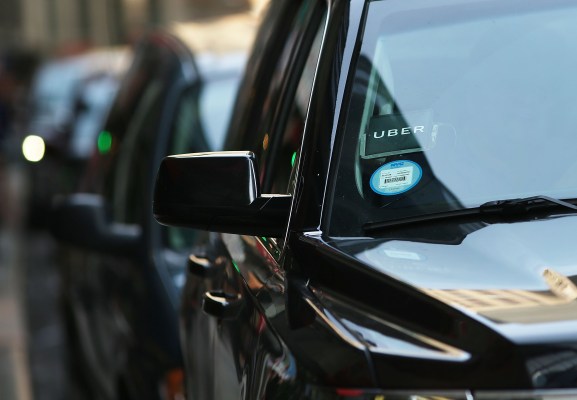As Uber works on trying to find a more profitable path ahead for its transportation-on-demand service, it has sold off one of its units that sat peripherally to that business. Fair, the car leasing startup that announced debt and equity funding of up to $1 billion in October, has acquired the active leasing portfolio of Xchange Leasing, a service Uber first established in 2015 to lease new and nearly-new vehicles to drivers who did not come to the service with their own cars.
The financial terms of the deal are not being disclosed, Fair’s co-founder and CEO Scott Painter told TechCrunch in an interview. In December, there were reports that a deal was in the works between the two after Uber decided to wind down the operation. Those reports claimed Xchange’s book value for its fleet of 30,000 cars was around $400 million, a figure that Painter did not dispute.
As part of the sale, Fair becomes Uber’s exclusive partner for leasing services for its drivers in the U.S. who want to lease cars for 30 days or more. Fair also has a direct-to-consumer business and that will continue alongside the deal, but Fair will not be entering into more partnerships with other transportation-on-demand companies that compete with Uber in the U.S.. “Uber is big enough for us for now,” Painter said.
There were reports that Uber was losing around $9,000 per car on the service — putting a strain on the company’s attempt to stem its losses and build a more financially sustainable business.
Dara Khosrowshahi, Uber’s new CEO, has set a goal of making the company profitable in the next three years. The outsized transportation startup has now raised $22.2 billion and is now valued at $48 billion, but it’s been pumping that funding into very aggressive expansion plans that have included passenger and driver acquisition subsidies, fighting regulatory battles, R&D and other costly efforts.
It’s a realistic goal — much smaller transportation companies have been close to or are already in the black.
Now the idea is, as the British like to say, “horses for courses.”
Uber will focus on its transportation service and building better relationships with those in its two-sided marketplace of drivers and passengers, while Fair will take on the leasing operation.
“As we progress on our mission to deliver better experiences for drivers, Uber is excited to partner with companies like Fair that have deep domain expertise and innovative solutions,” said Dara Khosrowshahi, CEO of Uber, in a statement. “We look forward to working closely with Fair to develop thoughtful, customized options for drivers in the U.S.”
On the side of Fair, it will be interesting to see how Fair manages the economics of a business that did not prove to be financially fruitful for Uber.
Painter argues that in its favor, Fair is only working on leasing services (for now; there will be purchasing options added over time) and has optimised its platform to fit the economics of this model. It’s an emerging area of the transportation industry, and one that automakers might also look to get involved in more directly, bypassing the traditional companies involved in renting vehicles, judging by recent moves from Ford and GM.
“Car ownership is changing,” said Painter, a familiar refrain in the automotive world today. The plan for Fair — which is backed by strategic investors that include Penske and BMW — is to be one of the companies at the center of how cars will be used by consumers in that future.
This isn’t a completely left-field idea. Even if the price of autonomous and other next-generation cars comes down over time, there are many in the automotive market who question whether they will ever be as affordable to the mass market as cars are today.
Still to come will be what the two plan to do outside the U.S., where Fair has yet to expand but wants to.
“International markets are definitely in our plans,” he said, noting that existing regulations for leasing in places like Europe will make entry relatively painless. This could potentially involve expanding its relationship with Uber, or using international markets to work out partnerships with others in the space, given that Uber is not always the dominant player in every country.
From what we understand, Fair has also secured and closed more funding, but Painter declined to talk about that in our interview. However, that funding could, in part, be used for an international push.
Fair’s existing business model is predicated on the idea of an “all-in” service, where customers’ monthly fee for leasing a vehicle also includes maintenance and some roadside assistance, with the option also of purchasing insurance through the platform, “both to protect the driver and protect our assets.” This is the company’s first acquisition, after a deal early in its life fell through to buy the assets of failed car selling and buying app Beepi.
It’s not clear how many staff from Xchange Leasing will be joining Fair as part of this deal. There were 500 employees working in the unit under Uber, and reports in December alleged that the number going to Fair will be around 150.
